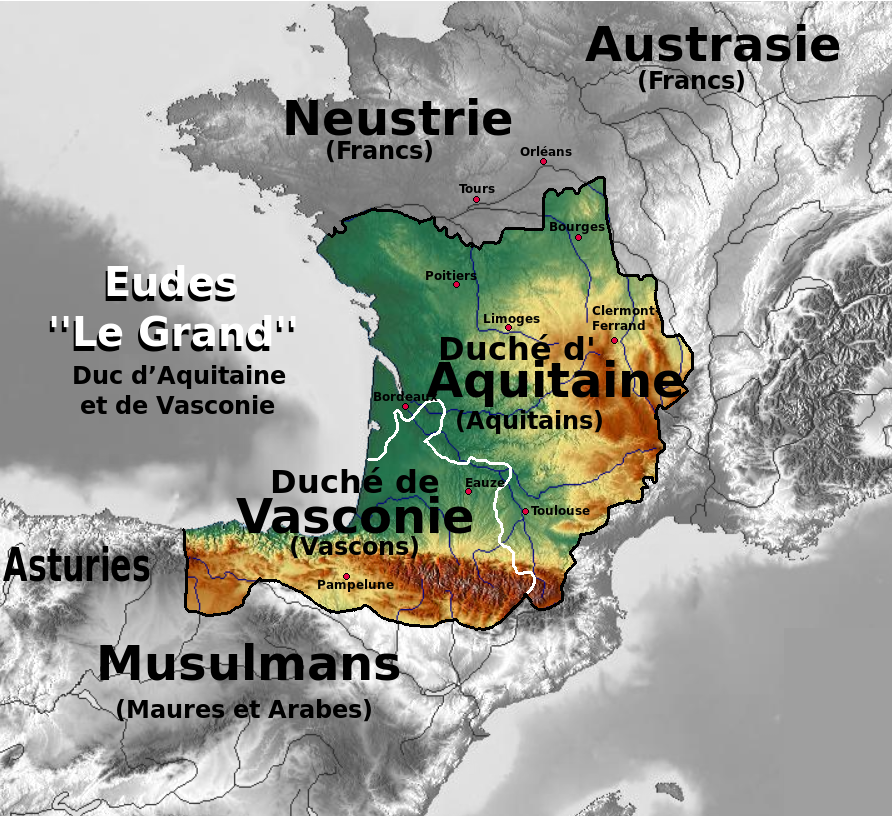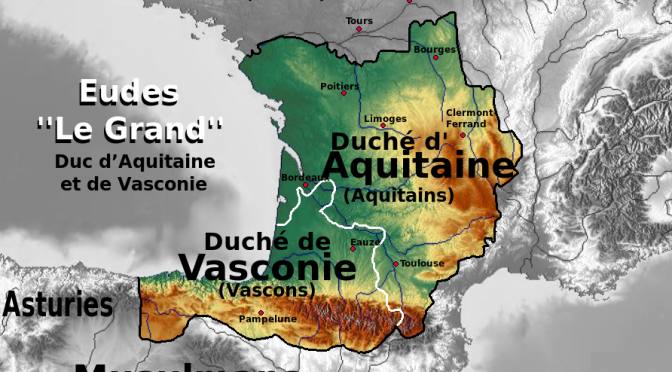The Basque language is what is called an isolate — it has no known living relatives. Contrast that with the other languages of Europe, almost all of which are Indo-European languages, and you can see why Basque has attracted so much attention from linguists. However, just because the Basque language has no living relatives doesn’t mean it came out of nothing. Today, the scientific consensus seems to be that the language of Aquitaine was an ancestral form of Basque.

- Not much is known about the people of Aquitaine. Some time around the start of the common era (29 BCE-18 CE), Strabo, the Greek geographer, described them: “The akytanoi are completely different, not only because of their language but also because of their physical appearance, looking more like the Iberians than the Gauls” adding that “there are more than twenty Akytanoi peoples, all small and dark, most of which live on the shores of the Ocean…”
- The idea that the language of these people was a form of Proto- or Pre-Basque comes from inscriptions containing the names of people and gods that can be directly related to modern Basque equivalents. As Larry Trask said, “Aquitanian is so closely related to Basque that we can, for practical purposes, regard it as being the more-or-less direct ancestor of Basque.”
- Some examples of Aquitanian words that have clear Basque cognates include cis(s)son, gison –> gizon (man), belex –> bele (crow), corri, gorri –> gorri (red), nescato –> neska, neskato (girl, young woman), and sembe –> seme (son).
- The Vascones were another pre-Roman tribe that resided to the south of the Aquitanians who spoke a similar language. While it seems very likely that these two groups of people were related, what that relationship was, exactly, is unclear.
- In the 600 and 700s, there was an attempt to create a joint Aquitaine-Vascones duchy, which grew out of Charibert II‘s kingdom of Aquitaine. The first ruler of this duchy was most likely Felix of Aquitaine, though it reached its peak under the rule of Odo the Great, who ruled until 735 and earned the epithet “the Great” after defeating Umayyad forces. However, by 781, Charlemagne had installed his son as ruler, essentially bringing to an end the independence of the joint Duchy.
Primary sources: Peñalver Iribarren, Xabier; Uribarri Agirrebengoa, Eloísa. Aquitanos. Enciclopedia Auñamendi. Available at: http://aunamendi.eusko-ikaskuntza.eus/es/aquitanos/ar-154137/; Wikipedia.
Discover more from Buber's Basque Page
Subscribe to get the latest posts sent to your email.



So true Buber.
In July 2005 I went on holydays to Buzet-sur_Baïse (https://goo.gl/maps/n39m2rgqQAMSeVfc8), in Northern Aquitaine, 190 km to the North East of the French Basque Country (Iparralde). I was about to enter a shop when I heard a couple of local old men… speaking Basque!!!
I stopped dead on my tracks. Basque so far away from Euskadi??? I opened my ears and only then realized that even if it sounded very similar to euskera, it wasn’t exactly the language that I had heard so frequently during my childhood (and even studied later on). It was Aquitanian and it sounded amazingly familiar.
Greetings,
Very interesting Buber!! It brought back childhood memories!! Happy trips to Biscarosse and the song we kids used to sing about the good king Dagobert who put his pants on wrong side out.
Back to 2020, this morning I read an article by Michel Feltin Palas, ( l’Express) that during a meeting on Oct. 10, 2020, the village of Saint Pierre d’Irube– the Labourd province, won the right to teach Basque at the Kinder garden level. It sounds to me that France is one step closer to ratifying regional language charter.
Time will tell.
Monique
I just learned that my last name ARIZAGA originates from the basque region of Spain. All I know is a conquistador came to Puerto Rico where he married an Taino woman and that’s where the last name flourished. I would love to track down my family history. Which sadly this is all any of us know.